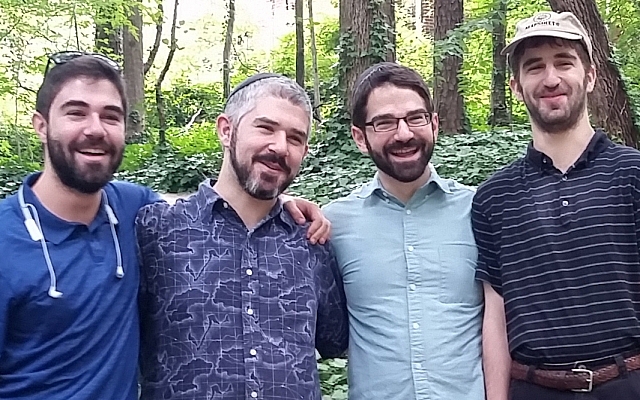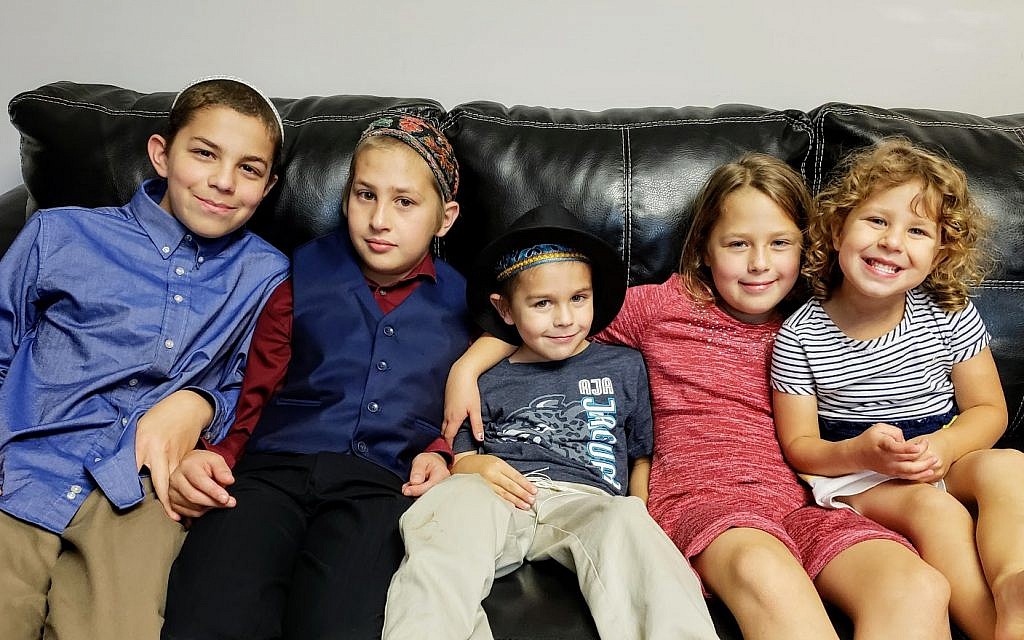Creating A Custom Education
The decision to home school is a personal one for families. It can range from wanting more control over your child’s education to trying to avoid exposure to secular values.
Chana Shapiro is an educator, writer, editor and illustrator whose work has appeared in journals, newspapers and magazines. She is a regular contributor to the AJT.

The decision to home school is a personal one for families. It can range from wanting more control over your child’s education to trying to avoid exposure to secular values. We interviewed three Atlanta Jewish families to learn the reasons behind their decisions, what tools they used and path they took to ensure their children succeeded academically. Here are their stories:
Deborah and Larry Beck moved to Atlanta in 1993, planning to send their children to Jewish schools. As Deborah puts it, “I ended up spending 22 years with our children, 24/7. You could say I nurtured people I like to be with!”
Sons Yosef and Yokhanan attended Beth Jacob Preschool; however, the parents were disappointed in their sons’ elementary day school and believed that they could do a better job of educating them at home, especially in middot, character traits.
“Our main goal was building character,” Deborah explains. “If a book, experience or person led to our goal, it was in; if not, it was out. I was less of a teacher, and more of a manager. The boys were given freedom to follow their interests and curiosity. That’s why they’re self-motivated and independent.”
This was before the internet.
Two more sons, Yissakhar and Betzalel, were born. After preschool, they, too, started learning at home with their parents. All four had different interests and learning styles, and Deborah managed four different curricula. Afternoons were free for museums, libraries, book stores, hiking, playing outdoors, building, and exploring, and the boys wrote about their experiences. Schooling was everywhere.
Larry helped with math and science as the boys got older. In addition to their rich Jewish home life, eventually a rabbi was hired to enhance the boys’ learning.
Among other resources, Deborah adapted the Christian Bob Jones textbooks, the best curriculum she could find. When one of their sons, who never liked math, became interested in physics in the 10th grade, he managed to master math. The kitchen was their basic science lab, and the three oldest sons won many top home-school science fair awards. All boys learned several languages.
The three oldest boys are graduates of Georgia Tech. Two are married. Betzalel is spending a third year in Israel.
Monica and Selwyn Hurwitz tried several Jewish schools for their twin daughters, but the girls weren’t thriving. When Yaffa and Maia were 9 years old, the family started home schooling. Maia and Yaffa are now happy 15-year-olds who enjoy learning.
The girls are advanced in some areas and need remedial work in others. Monica addresses these areas, following her daughters’ interests as much as possible. She likes the Acellus Academy online curriculum. Maia and Yaffa are both auditory learners, and this program suits them best.
There are myriad online programs for children who learn at home, and Monica contacted at least 100 of them and reviewed sample lessons. Maia and Yaffa independently select classes from several sources. If a certain class isn’t working, they try a different one.
The girls are officially enrolled in the Atlanta public school system and follow its curriculum at their own pace. Georgia offers the Edmentum online course, for which there is no tuition. Yaffa and Maia take standardized achievement tests every three years.
The family uses the Lookstein Virtual Jewish Academy’s Judaics program, Rosetta Stone for language and the Edmentum science programs. They also prepared for their b’not mitzvah with local teacher, Chana Saiman. Some online classes allow students to retake exams many times, so material can be reviewed and mastered without pressure. When the girls express an interest in a subject, they find related courses online or on video.
Yaffa and Maia are excellent cooks. They read cookbooks and follow cooking shows, and have created recipe binders. They learned to sew at a Boys & Girls Club. Monica does math with her daughters, sometimes with Selwyn’s help.
Several years ago, Selwyn was in a catastrophic accident. During the first year after that trauma, the girls had almost no “schooling,” but the family built a special handicap-accessible room for him. Helping with the room for their father, the girls learned math-based lessons, including fractions, geometry and budgeting. The flexible schedule allows the family to enjoy extra-curricular activities as desired, and there are many home-school group activities in Atlanta and beyond.

Ilana and Akiva Gimpelevich have five children, some of whom have been in and out of Jewish day schools, depending on their needs and experiences. Shmuel, 14, lives at an out-of-town yeshiva for an advanced Torah education. Natanel, 12, is currently home-schooled. He follows a daily planner of classes and activities his mother sets up for him, which includes violin lessons. Cheni, 9, asked to be home-schooled this year, but she may go back to Jewish day school next year. Five-year-old Miha and 3-year-old Talia are enrolled at Atlanta Jewish Academy.
Several years ago, Ilana started a home-school Facebook group, which serves as a connection and resource. She is a regular participant in the Atlanta Homeschool Cooperative, where she currently offers a genetics class. Her son Natanel takes gymnastics there.
The co-op, which is near the zoo, offers a variety of classes for all ages, each led by a volunteer co-op parent. Wednesday is Park Day, when everyone is welcome to play and socialize.
The Gimpeleviches review school decisions with their children yearly. Ilana spends a lot of time driving and selecting activities and classes with her children. She laughs that she’s learned not to feel guilty that they can’t do everything.
Ilana stated her philosophy, “Does school further family relationships or does it cause fighting? Homeschooling is not about curriculum or grade levels. It’s about building a relationship with one’s child.”
Regardless of the reasons behind the decision to home school, the Jewish families we interviewed seemed confident in their choices and believe they’ve set their children on the right road to successful futures.



comments